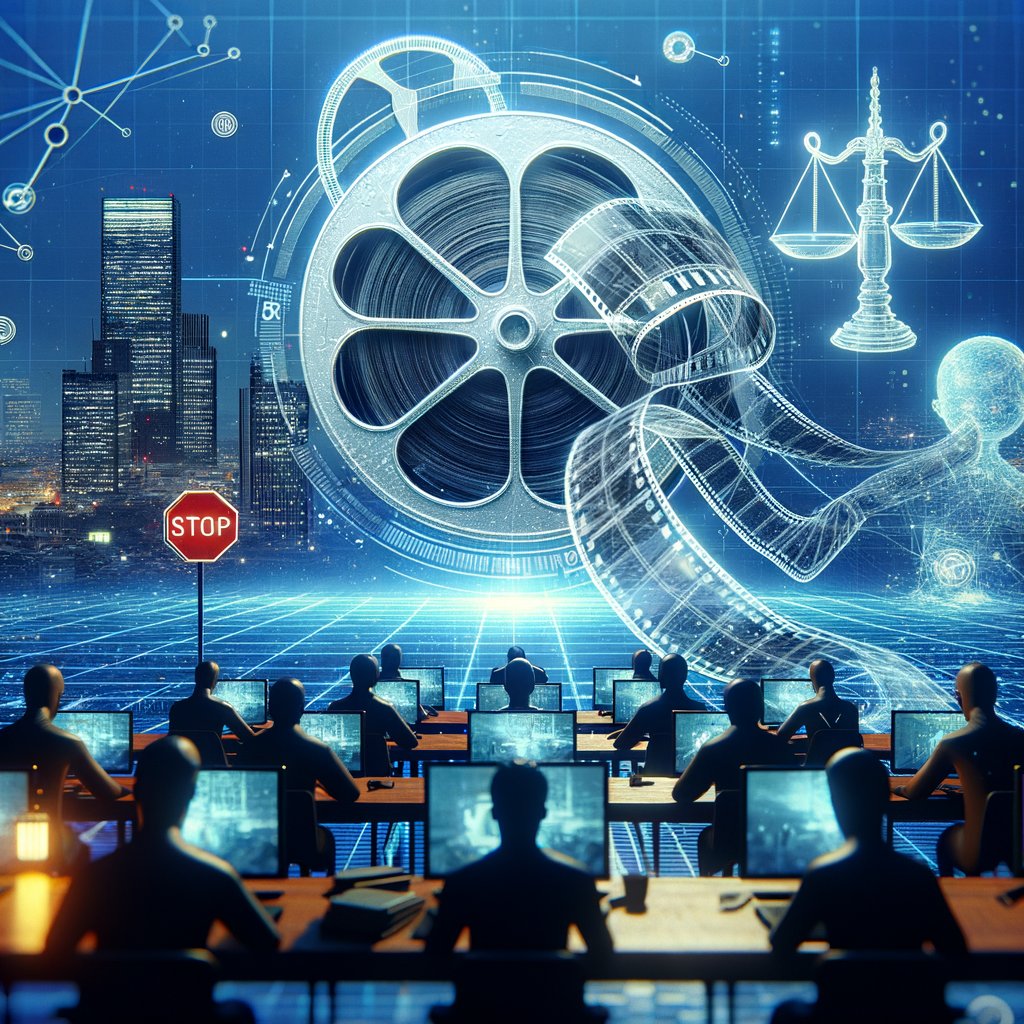Image created by AI
Navigating the Legal Complexities of VPN Usage for Streaming in South Africa
As the digital world becomes increasingly interconnected, the usage of Virtual Private Networks (VPNs) to access global content has surged. However, for South Africans, the intersection of VPN usage and content streaming presents a legal quandary that could lead to serious repercussions.
In South Africa, accessing streaming services through a VPN to bypass geo-restrictions is not just about catching the latest episode of a favorite show ahead of local releases. This practice can intersect with copyright and cybercrime legislation, as bypassing geo-blocks constitutes unauthorized access to copyrighted material, irrespective of the viewer's good intentions or the availability of content locally.
The global movie and TV licensing framework dictates that video streaming services enact geo-blocking due to the region-specific nature of distribution rights. This means a show available on a service like Netflix USA could be restricted on the South African version of the platform. Major services, including Netflix, Disney+, and Amazon Prime Video, adjust their libraries per region, reflecting differing external licenses and making some content inaccessible to South African viewers legally.
For instance, hit shows from HBO streamed via MultiChoice’s Showmax may not be available on similar platforms in the U.S. or vice versa, depending on the distribution rights in different territories. While these restrictions aim to keep streaming service costs affordable by lowering license acquisition costs, they also cultivate a breeding ground for the tempting use of VPNs.
South Africa’s stringent copyright laws, bolstered by the Cybercrimes Act of 2021, outline clear penalties for the unauthorized distribution and access of copyrighted content. This legal framework makes it illegal to employ VPNs for accessing content not officially available in the national market. Violations can lead to fines up to R10,000 and up to five years' imprisonment.
From a content provider's standpoint, this fragmented availability across various platforms is driven by the competition among streaming services, each vying for exclusive content to attract subscribers. Previously dominated by Netflix, the streaming industry now sees fierce competition from new entrants like Hulu and regional disparities in content availability. For example, the delay in the South African release of popular shows, as seen with the broadcast timeline of "The Rookie" season six on DStv, exacerbates user frustration.
The Internet Service Providers Association (ISPA) further complicates matters, outlining that beyond licensing, content in South Africa must also obtain a classification from the Film and Publications Board (FPB). This requirement ensures that all content is suitable for its intended audience, adding another layer of legal obligation for distributors.
Streaming services like Netflix operate under these laws, ensuring they remain registered as content distributors and comply with FPB classification rules, despite not being formally licensed by ICASA as yet. The use of VPNs to sidestep these rules can thus inadvertently contribute to the broader problem of non-compliance with national regulations.
Amid these restrictions and legal implications, the allure of VPNs also comes with the inherent benefits of enhanced privacy and security. VPNs can protect users from cybersecurity threats, provided their use aligns with lawful activities. This dual nature showcases the VPN as a tool that, much like any technology, can be used either constructively within legal parameters or detrimentally.
In conclusion, South Africans must navigate these legal complexities with awareness and caution. While the digital age offers substantial conveniences and global connectivity, it also requires adherence to local and international laws that are in place to protect content creators, distributors, and lawful access to entertainment.










